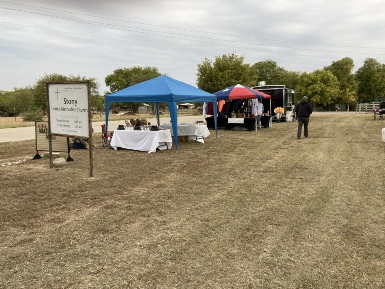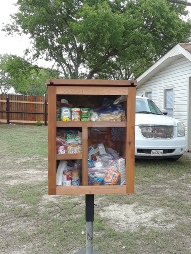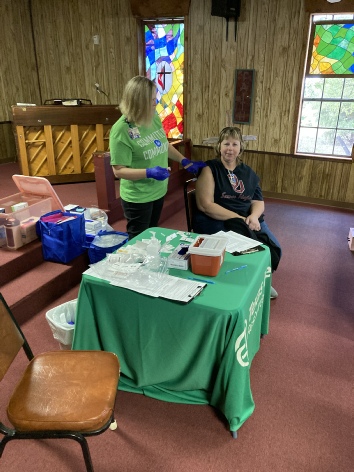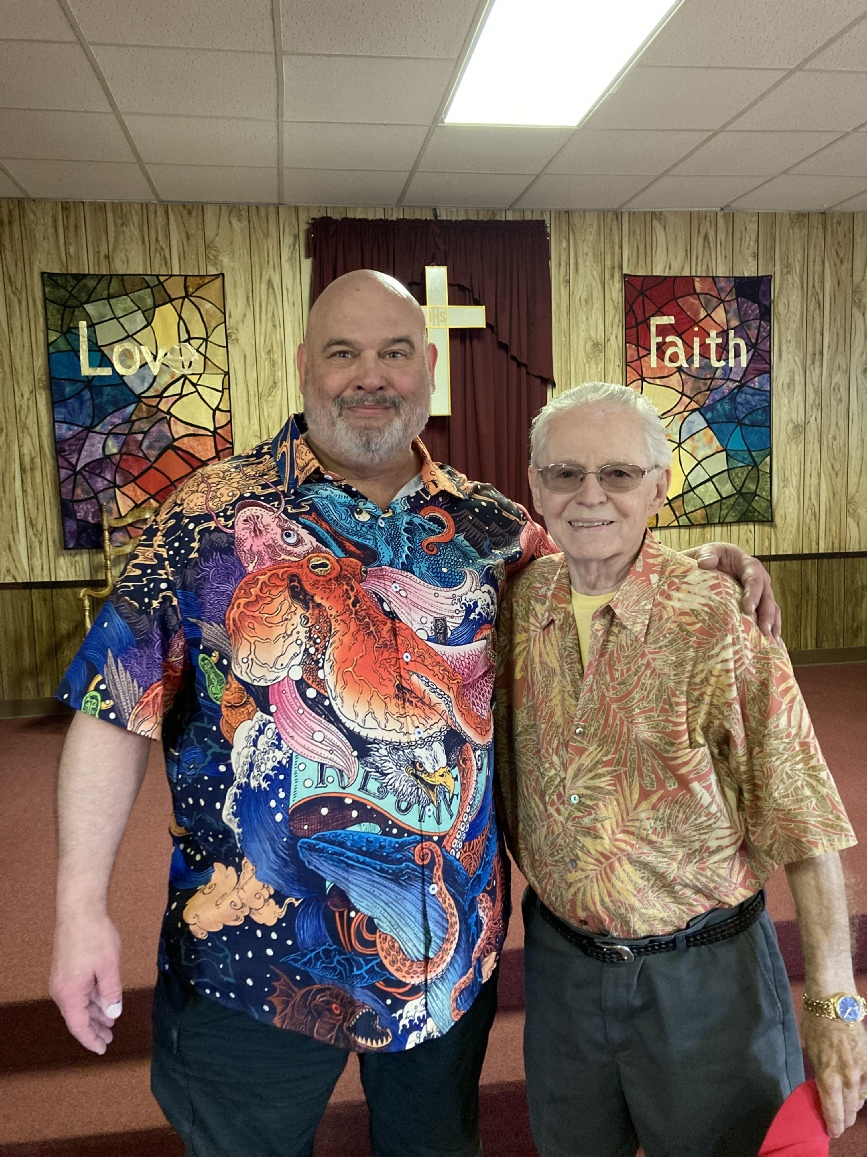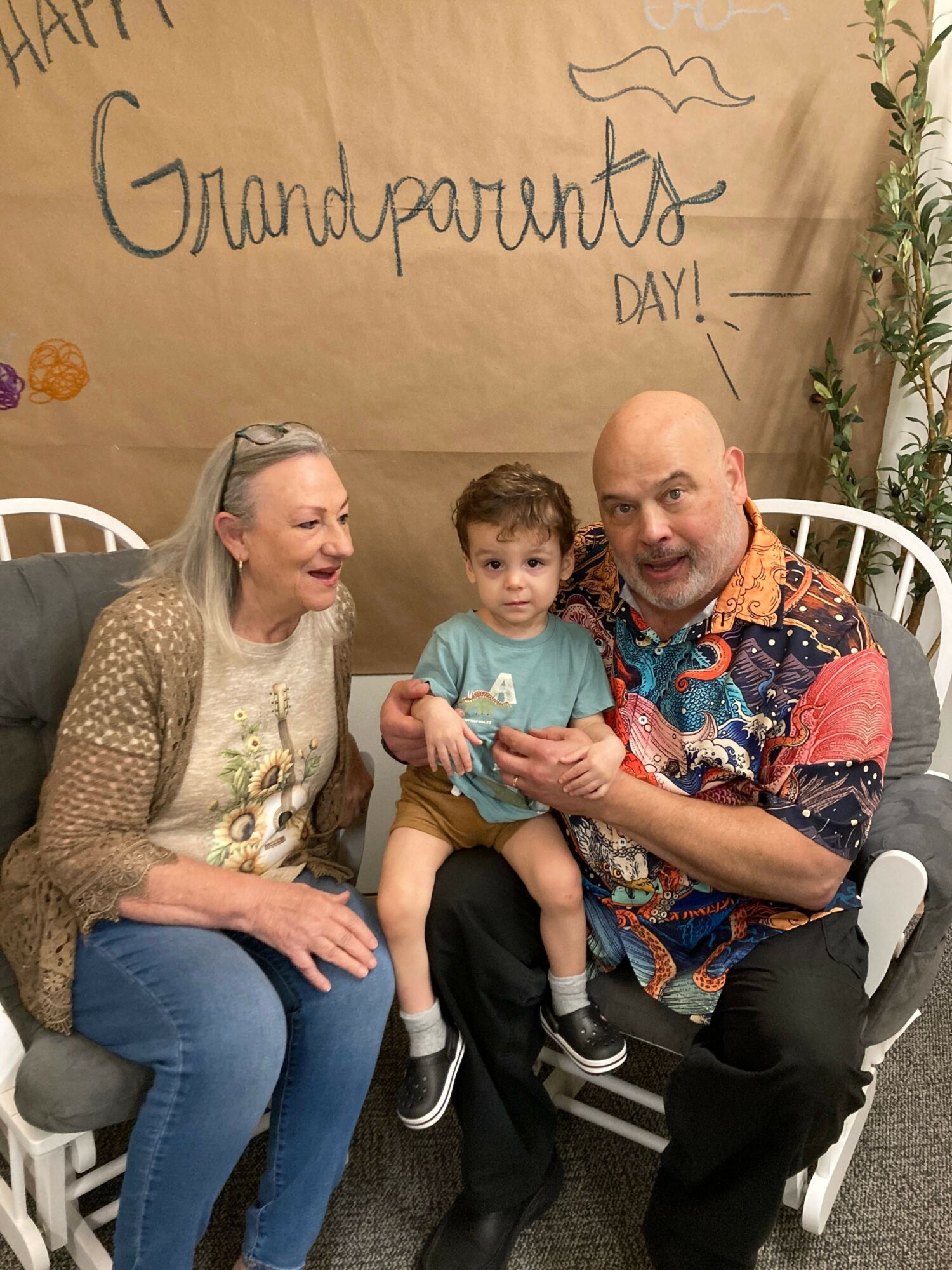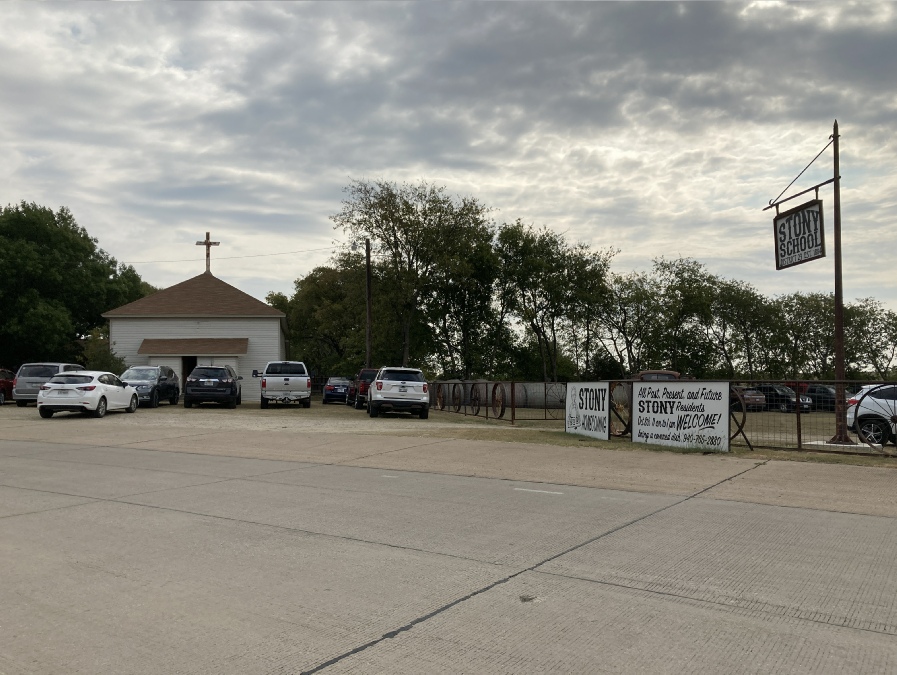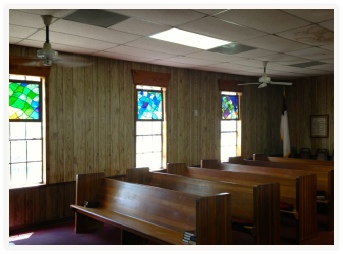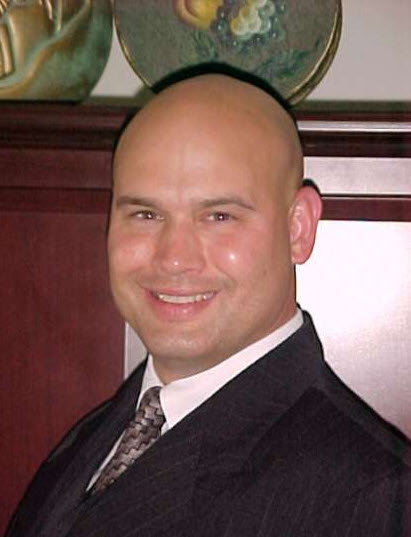

Today we’d like to introduce you to Joel Scheller.
Hi Joel, thanks for joining us today. We’d love for you to start by introducing yourself.
I became a Christian in the early ’90s, and from the start, I felt a natural pull toward teaching and mentoring. Over the years, I used those gifts in various churches across the country, often moving due to my secular career. Each new city brought a new congregation, and each congregation helped shape my understanding of ministry and service.
I’ve been in the Dallas–Fort Worth area since 2001, and in 2009, I formally answered the call to ministry in the United Methodist Church. In 2013, I was appointed pastor of Stony United Methodist Church in Ponder, Texas, and in 2017, I took on a second charge at Cooper Creek UMC in Denton. My Sundays are full—I lead service at Cooper Creek from 9:30 to 10:30 a.m., then head to Stony for the 11:00 a.m. service.
When I first arrived at Stony, the congregation had dwindled to just four people. The church had been around for over a century and had thrived in decades past, but time and mortality had taken their toll. We began reaching out—visiting neighborhoods, hosting events—and within a couple of years, attendance grew to about 30. Recently, we’ve seen another decline, mostly due to the passing of longtime members and families relocating to support aging loved ones. Still, our doors remain open to all.
We believe in the unconditional love of God for every person—regardless of race, religion, nationality, ethnicity, sexual orientation, political affiliation, immigration status, or any other label that tends to divide us. That belief shapes everything we do. We’ve worked hard to stay relevant to our community, offering craft bazaars, free flu shot clinics, a self-serve food pantry, and a warm welcome to both strangers and familiar faces.
Over time, my focus in ministry has shifted. While biblical education is still important, I’ve become more passionate about preaching the universal love of God. I believe the Bible has often been misused to justify segregation and control, but I see it as a call to be vessels of divine love—without conditions. Of course, we must also be wise and discerning, especially when goodwill is exploited for selfish ends.
Stony isn’t just a church to me—it’s home. The congregation is my closest family, and I’m honored to walk this journey with them.
Alright, so let’s dig a little deeper into the story – has it been an easy path overall and if not, what were the challenges you’ve had to overcome?
Being the pastor of a small, rural church comes with its share of fiscal challenges. We’ve faced seasons where the path forward wasn’t clear, and yet—time and again—God has provided. Even when we couldn’t see the way on the near side of the journey, grace met us in the middle. Our doors are still open, even if the hinges squeak with age.
Over the years, I’ve found that the most significant theological pushback we’ve received from the broader community stems from our interpretation of God’s love. There are two areas in particular that tend to stir debate.
The first is the subject of Hell. I know this diverges from many fellow believers, but I do not believe the Bible supports the traditional doctrine of eternal hellfire. More importantly, I don’t believe it aligns with the character of a God who loves us so deeply that He would send Jesus to live among us and die for people who didn’t even understand Him. To me, the traditional concept of Hell is a human construct—one designed to control through fear. I stand firmly on the words of 1 John 4:18: “There is no fear in love, but perfect love casts out fear; for fear has to do with punishment, and whoever fears has not reached perfection in love.”
The second area is our full acceptance of the LGBTQ+ community. I’ve had Matthew 18:6 quoted at me more times than I can count: “If any of you cause one of these little ones who believe in me to sin, it would be better for you if a great millstone were fastened around your neck and you were drowned in the depth of the sea.” But again, I return to 1 John. If God is love—and I believe He is—then our calling is to reflect that love without exception. Without conditions. Without fear.
Stony United Methodist Church should be a sanctuary and a refuge for all. Jesus said, “Come to me, all you who are weary and burdened, and I will give you rest… For my yoke is easy and my burden is light.” I believe that yoke is simple: to be a vessel of God’s love for everyone. No picking and choosing.
Can you tell our readers more about what you do and what you think sets you apart from others?
If I had to describe what I’m known for, it would be my teaching. It’s where I come alive. Whether I’m standing in front of a congregation or leading a training session, something in me ignites when I’m helping others learn and grow. I’m especially known for my teaching of scripture—not just reciting it, but challenging the traditional interpretations that many believers have long held. I strive to transcend surface-level understanding and invite people into deeper, more transformative conversations about faith.
Above all, I hope I’m known as a person of kindness. If anyone ever seeks to emulate me, I’d want that to be the foundation they carry forward. Kindness, to me, is the root of all meaningful ministry.
Ministry has been the driving force in my life. That said, I’ve also been bi-vocational for about 15 years, working as a Cybersecurity Professional. My focus has been on Security Awareness Training and building a culture of vigilance and care within organizations. I’ve served in that capacity at an electrical utility cooperative, two financial services firms and, most recently, at a bank.
Interestingly, the common thread between my ministry and my secular work has been teaching and mentoring. Whether I’m guiding a church member through spiritual growth or helping a team understand phishing threats, the heart of it is the same: empowering others through knowledge and compassion.
I’ve been blessed to walk this journey with my wife, Cindy, for 42 years. She is not just my partner in life—she is the other half of my ministerial capacity. Her presence, wisdom, and support have shaped every chapter of this calling. Together, we’ve raised two sons, Brock and Connor, both of whom are married—Brock to Marian, and Connor to Cassie. They’ve given us five beautiful grandchildren: Adrian, Clara, Zoe, Michael James, and Charlotte. They are the joy of our lives and a daily reminder of the legacy of love we hope to leave behind.
I’m growing long in the tooth now, and I’ve begun considering retirement from my cybersecurity career. But I will never retire from ministry. My hope is that my final act of ministry will be the words spoken at my funeral—that the life I’ve lived will serve as a testimony of faith, service, and love.
Who else deserves credit in your story?
One of the earliest and most enduring influences on my theological journey was the works of J. Paterson Smyth, a late 19th /early 20th century Anglican priest. His work isn’t widely known today, which is why I’ve created a website dedicated to preserving and sharing his teachings. Smyth didn’t just shape my understanding of scripture—he taught me about humility and compassion, and how those virtues must be woven into both belief and practice.
In more contemporary terms, I’ve been blessed with many mentors throughout my seminary training—far too many to name. But a few stand out for their lasting impact: Jack Soper, Judith Reedy, and Marsha Middleton were instrumental in shaping my development as a United Methodist Church pastor. Their wisdom, integrity, and depth of insight continue to influence how I teach, lead, and serve.
I also credit my father and my early faith community for shaping my perspective—though in a very different way. I was raised in a strict, controlling, and legalistic religious environment. That experience taught me firsthand how self-righteous religiosity and the misuse of scripture can cause real harm. It’s a lesson I carry with me every day in ministry. My personal history equips me to challenge the theological justifications people often use to marginalize others. I’ve seen how damaging that can be, and I’m committed to offering a faith rooted in love, inclusion, and grace.
Pricing:
- Grace is Free
Contact Info:
- Website: https://stonyumc.org
- LinkedIn: https://www.linkedin.com/in/joel-scheller-7317a43b
- Other: japtersonsmyth.com and coopercreekmethodist.org
